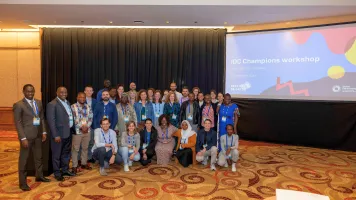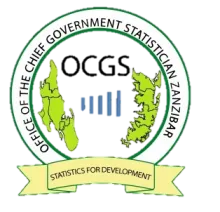Today is African Statistics Day, observed every year on 18th November to increase public awareness about the crucial role that statistics play in all aspects of social and economic life. When statistics are accurate and inclusive of all, people’s lives can be improved as policies are better targeted and decisions made more fairly. However, we know that many gaps remain in official statistics.
The lack of gender statistics remains one of the most pervasive gaps in official statistics and data across the world. Our understanding of women and girls’ lives – and the constraints they face – is limited because we lack high-quality gender data. That is why Zanzibar’s Office of the Chief Government Statistician (OCGS) has focused our Inclusive Data Charter Action Plan on enhancing the production, availability, and use of gender statistics.
Launched yesterday at a national event, the action plan outlines concrete priorities, activities, and collaboration opportunities to strengthen the quality of gender data and statistics. The action plan focuses on improving gender statistics on three key issues: migration, marriage and divorce registration, and crime. With better data on these issues, Zanzibar’s government can implement policies and monitor progress towards key aspects of the Zanzibar Poverty Reduction Strategy and the Sustainable Development Goals.
Mrs. Mayasa Mwinyi, Zanzibar’s Chief Government Statistician, explained at the event that ‘Gender statistics are more than data disaggregated by sex. Gender statistics must accurately reflect the lives of women and men. Therefore, we will be working towards collecting data that can be disaggregated by age, location, education, employment, and disability, as well as sex – and ensuring data is inclusive of marginalized groups.’
Zanzibar’s OCGS joined the Inclusive Data Charter (IDC) in October 2019 and has been working closely with the IDC secretariat, ministry representatives, and international development partners to develop the action plan. Collaboration is also at the heart of the action plan, with OCGS strengthening ties between data producers and users in the region and working closely with international peers and capacity building partners.
Ms. Mauwa Makame, Deputy Principal Secretary, Ministry of Labour, Empowerment, Elder, Women and Children, Zanzibar, reiterated that ‘Regardless of whether they are large or small, all institutions must consider how to make their data more inclusive. Only with all of our institutions working together can we achieve the goal of producing quality data. We must keep in mind that planning our country’s development requires high-quality disaggregated data’.
Launching the action plan is an important milestone in developing an inclusive statistical system that will help us to make sure no one is left behind. As we work towards bridging the gender data gap and advancing disaggregation on other dimensions, we invite our national and international colleagues to read our action plan and get in touch if there are ways that we can collaborate.



